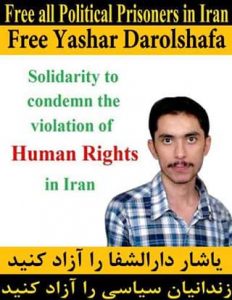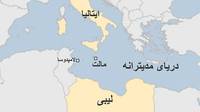Negotiations for the secretive Transatlantic Trade and Investment Partnership (TTIP) between EU and the US went almost unnoticed in the Netherlands for several months, but campaigning has put a major spotlight on the injustices of international trade and investment rules and received wide support from a broad range of citizens and organisations. As a result, the government has commissioned an analysis of the potential impact of including Investor-State arbitration in TTIP. May 19th has offered another chance to tell the European politicians not to negotiate away our right to regulate corporations.
Dutch government representatives are known for being hardliners on trade and investment issues, with investor protection high on their agenda and much less attention given to the social and environmental costs of corporate investment rules. As one the most ’open’ economies in Europe, the widely shared assumption is that TTIP would have tremendous economic benefits for the Netherlands. The Dutch economy is highly focused on exports, and the official position is that TTIP could help the EU ’trade its way out of the crisis’.
Public debate and counter offensive
Moreover, the secrecy in which negotiations were held meant there was little media attention or public scrutiny of one of the biggest trade agreements ever negotiated. This dynamic changed however, when a coalition of civil society, privacy and consumer organisations met to discuss how to work collectively on the topic of TTIP and influence the public debate. An opinion piece written by two legal philosophers from the University of Leiden on the lack of public control and transparency around the TTIP negotiations fueled the public debate and led the minister of Foreign Affairs, Lilianne Ploumen, and EC Trade commissioner the Gucht to launch a counter offensive in the national newspaper NRC. De Gucht argued that ’we are not doing anything secret’, while Ploumen argued that trade negotiations would be useless if conducted under conditions of full transparency.
The public discussion subsequently shifted towards investor-state arbitration and the power of arbitrators to override public interest in favour of corporate rights. This privatised system of justice – established in most investment agreements and known as Investor-State Dispute Mechanisms (ISDS) – gives investors the exclusive right to file claims against states, if they change policies in such a way that they might reduce future profits. This has led to corporate lawsuits filed against policy changes made in the public interest: Philip Morris is suing Uruguay over controls on cigarette packaging and Vattenfall which has sued Germany on two instances, first for imposing water quality standards on their coal power plant, and in an on-going case over Germany’s political decision to phase-out nuclear energy, are two cases in point. The wave of lawsuits that resulted from measures taken by Greece, Spain and Italy to address financial crisisare further evidence of how investment agreements encourage vulture-like behaviour by investors. Since most investment disputes are being filed by US investors, this should be a warning of the potential high costs of including ISDS in TTIP. As Cecilia Olivet, author of ’Profiting from Injustice’ says: “It is only a matter of time before European and US taxpayers start paying the costs. Not only will our money go to pay for expensive lawsuits that compensate big business, but we will also pay as critical environmental and social regulations and policies are dismantled to clear the way for corporate profiteering.”
The ’Golden Standard’
After the US, the Netherlands is second in terms of sourcing the most claims by investors against states . By 2012, the Netherlands had signed 89 bilateral investment treaties (or BITS) which makes it one of the world’s leaders in investment protection. The Dutch BITs are known for their far-reaching rights and protection given to foreign investors. In combination with a business-friendly fiscal environment, this has led to the phenomenon of ‘treaty-shopping’: companies establishing themselves in the Netherlands to qualify for the extensive protections offered by Dutch BITs which they use to sue states, including on occasion their own home states. The Dutch government has expressed its wish to maintain at least the same high level of protection for investors (known as the Dutch ‘Golden Standard’) in future agreements signed by the EU.
Against ISDS in TTIP
As the Dutch government has so far never been on the receiving end of an investment claim, it took parliamentarians a while to realise the danger to Dutch regulatory powers and legislation of including investor-state arbitration in TTIP. At a sold-out European Election debate organised by the Fair Green and Global Alliance on April 22nd in Amsterdam, MEPs from all over the political spectrum ended up in a heated debate abound TTIP. Bas Eickhout (Greens) demanded that his colleagues take a clear position: are you going to vote for or against TTIP if it includes an ISDS chapter? Even the most liberal party (VVD) said they would not necessarily be in favour.
In November 2013, the Dutch parliament requested the government to commission an investigation into the potential implications of including ISDS in TTIP. The Ministry of Foreign affairs is preparing an analysis and minister Ploumen has promised the Senate to not only map the economic, but also the political risks involved. However, neither the risks deriving from the Dutch ’Golden Standard’, nor the effect on poorer countries, in particular as TTIP will set the standards for future trade and investment agreements, have been part of the debate so far.
Meanwhile, the debate on TTIP is gaining ever more traction throughout the Netherlands. A public action is being organised in the run up to the European Elections, on May 19th. On the same day there will be a public and live-streamed hearing in the parliament about the possible material and political impacts a trade agreement with the US could, through regulatory cooperation and ISDS, have on social and environmental standards, labour conditions and sustainability.
A big question remains as to whether the hearing will roll back the corporate investment regime, and whether the results of the European Election will influence the chance of a no-vote in the European Parliament. The research commissioned by the Dutch parliament is being done by a conservative academic, who has repeatedly argued in favour of Investor-State arbitration, which has led many to believe that the outcomes are set from the beginning. Nonetheless, for the most investor-friendly country in Europe to even have a vigorous debate around the potential negative impacts of TTIP in both parliament and the country’s main newspapers, marks a huge step forward.
Hilde van der Pas (Transnational Institute)
Picture : CC Campact
Picture of the debate (below) : René Vlak
This op-ed has been translated in French here.
YOUR COMMENTS
- 1 ON 26 MAY AT 11:33BY RENÉ VLAKGreat blog post. Just one minor detail: the picture at the bottom of the article is not made by Campact, but by me. More pictures of the debate can be found here:https://secure.flickr.com/photos/somoamsterd
آدرس و اسامی صفحات مرتبط با فدراسیون عصر آنارشیسم
Federation of Anarchism Era Social Media Pages
۱- آدرس تماس با ما
asranarshism@protonmail.com
info@asranarshism.com
۲- عصر آنارشیسم در اینستاگرام
۳- عصر آنارشیسم در تلگرام
۴- عصر آنارشیسم در توئیتر
۵ – فیسبوک عصر آنارشیسم
۶ – فیسبوک بلوک سیاه ایران
۷ – فیسبوک آنارشیستهای همراه روژاوا و باکور - Anarchists in solidarity with the Rojava
۸ – فیسبوک دفاع از زندانیان و اعدامیان غیر سیاسی
۹ – فیسبوک کارگران آنارشیست ایران
۱۰- فیسبوک کتابخانه آنارشیستی
۱۱ – فیسبوک آنارشیستهای همراه بلوچستان
۱۲ – فیسبوک هنرمندان آنارشیست
۱۳ – فیسبوک دانشجویان آنارشیست
۱۴ – فیسبوک شاهین شهر پلیتیک
۱۵ – فیسبوک آنتی فاشیست
۱۶- تلگرام آنارشیستهای اصفهان و شاهین شهر
۱۷ – اینستاگرام آنارشیستهای اصفهان و شاهین شهر
۱۸- تلگرام آنارشیستهای شیراز
۱۹ – تلگرام ” جوانان آنارشیست ”
۲۰ - تلگرام آنارشیستهای تهران
۲۱ – اینستاگرام جوانان آنارشیست
۲۲ – گروه تلگرام اتحادیه آنارشیستهای افغانستان و ایران
۲۳ – توییتر اتحادیه آنارشیستهای افغانستان و ایران - The Anarchists Union of Afghanistan and Iran
۲۴ – فیسبوک اتحادیه آنارشیستهای افغانستان و ایران
۲۵ – اینستاگرام اتحادیه آنارشیستهای افغانستان و ایران
۲۶ – کانال تلگرام خودسازماندهی مطالب گروه اتحاديه آنارشیستهای افغانستان و ايران
۲۷ – گروه تلگرام خودساماندهی مطالب گروه اتحادیه آنارشیستهای افغانستان و ایران
۲۸– اینستاگرام آنارشیستهای بوکان - ئانارکیستە کانی بۆکان
۲۹- کانال تلگرام کتابخانه شورشی
۳۰- کانال تلگرام ریتم آنارشی
۳۱- تلگرام آنارشیستهای اراک
۳۲- تلگرام قیام مردمی
۳۳- ماستودون عصرآنارشیسم
۳۴- فیسبوک آنارشیستهای مزار شریف
۳۵- فیسبوک آنارشیستهای کابل










